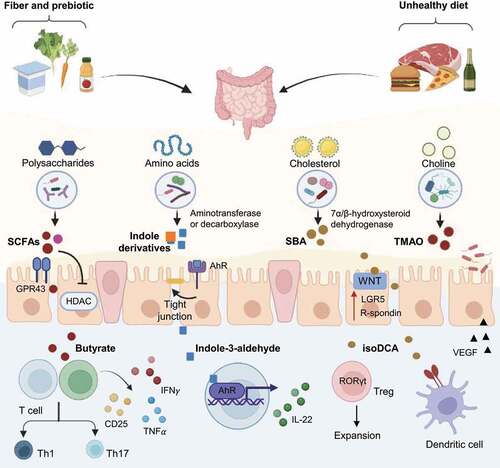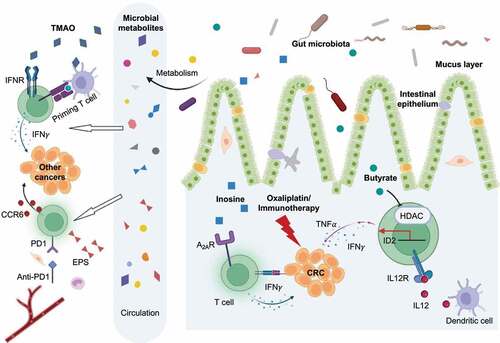Figures & data
Table 1. SCFA-producing bacteria in human gut.
Figure 1. Gut microbial metabolites in CRC development. Different metabolites are produced by microbes-mediated metabolism of various dietary components. Some microbial metabolites including SCFAs and indole derivatives are protective against colorectal tumorigenesis by regulating epigenetic modification, maintaining intestinal barrier integrity, and modulating host immunity. While other metabolites such as SBA and TMAO contribute to CRC development by activating the oncogenic WNT pathway and promoting an immunosuppressive microenvironment that favors the growth and survival of tumor cells. GPR43, G protein-coupled receptor 43; RORγt, retinoid orphan receptor γt; VEGF, vascular endothelial growth factor.

Table 2. Amino acids and lipid metabolites associated with CRC.
Figure 2. Gut microbial metabolites in cancer treatment. Microbial metabolites have varied effects on cancer treatments including chemotherapy and immunotherapy. Butyrate and inosine can improve treatment efficacy against CRC by boosting the antitumor immune responses by dendritic cells and effector T cells, respectively. Meanwhile, some metabolites such as TMAO and EPS can enter the circulation and reach tumor tissues that are outside from the gut, eventually influencing treatment efficacy against these cancers. EPS, exopolysaccharides; ID2, inhibitor of DNA binding 2; IFNr, interferon production regulator.

Data availability statement
Data is available within the article or its supplementary materials.
